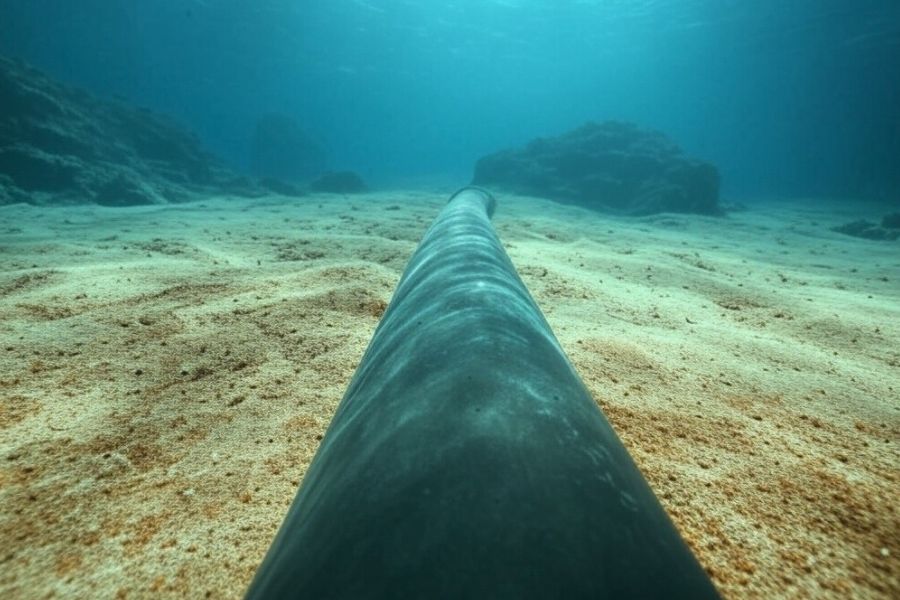Egypt and Greece solidify plans for 1,000 km undersea power cable

Egypt and Greece plan a 1,000 km undersea cable to supply Europe with 3,000 MW of clean solar and wind energy. Greece’s Prime Minister, Kyriakos Mitsotakis, said the project “will allow both Greece and Europe to import low-cost energy,” especially wind power that Egypt can produce cheaply.
Egypt and Greece are progressing with a major project to build a 1,000-kilometre undersea power cable. This new link will send clean energy from North Africa to Europe. It’s a big step toward a greener future and stronger ties between the two countries.
A bridge for green energy
The cable will run beneath the eastern Mediterranean Sea, as an undersea connection from Egypt to Greece. Once completed, it will carry up to 3,000 megawatts of electricity. Most of this power will come from solar and wind farms in Egypt, making it a major source of renewable energy for Europe.
Once finished, it's designed to carry as much as 3,000 megawatts of electricity. Most of this power will come from Egypt's solar and wind farms. By doing so, this positions Egypt as an important supplier of renewable energy for Europe.
Greece’s Prime Minister, Kyriakos Mitsotakis, said the project “will allow both Greece and Europe to import low-cost energy,” especially wind power that Egypt can produce cheaply. Egyptian President Abdel Fattah el-Sissi also called the project a “strategic step,” saying it’s not just between two countries but has “regional and international dimensions.”
Backed by the EU
The European Union supports the project and may provide large amounts of funding. With Europe trying to move away from Russian energy since the 2022 Ukraine invasion, this underwater power connection offers a new and more secure energy path.
This makes Egypt and Greece key players in helping Europe meet its energy needs while also cutting carbon emissions. The EU equally wants to grow its energy ties with non-member countries, and this project is a major part of that plan.
How the undersea power cable project will work
The private sector will help construct the cable, with Greece’s Copelouzos Group leading the business side of the project. Estimates for the total cost of the Egypt and Greece underwater power cable are at €4 billion (around $4.5 billion). If all goes as planned, it will be ready in five years.
This project is more than transferring power from one place to another, it’s about planning for the future. Egypt is facilitating this by building solar and wind farms specifically for this project. That means more jobs, cleaner air, and a stronger economy for the region.
More than energy
While the main focus was on the undersea power cable, the meeting between Mitsotakis and el-Sissi also covered many other areas. They signed deals to work together in defence, culture, finance, and labour, too. One agreement will aid the employment of more Egyptian workers in Greece during peak farming seasons.
They also talked about regional security and migration. Mitsotakis called Greece a “steadfast ally of Egypt,” showing support for Egypt’s growing relationship with the EU.
Looking ahead
This project has the potential to open the door for more undersea energy connections. After observing this project between Egypt and Greece, other countries may follow suit, too. As the world transitions to cleaner energy, projects like this could become commonplace.
Connecting Egypt and Greece, this 1,000km underwater power cable is more than an impressive engineering project in the Mediterranean. It symbolises international cooperation and a commitment to a sustainable future. Thanks to strong leadership and backing from the EU, this ambitious project is nearer to becoming a reality.
Middle East & North Africa Energy Outlook Report 2025
This must-have report for industry players offers a comprehensive analysis of the latest technological advancements and forecasts for the energy landscape in one of the world's most pivotal regions, the Middle East and North Africa.



.png)

